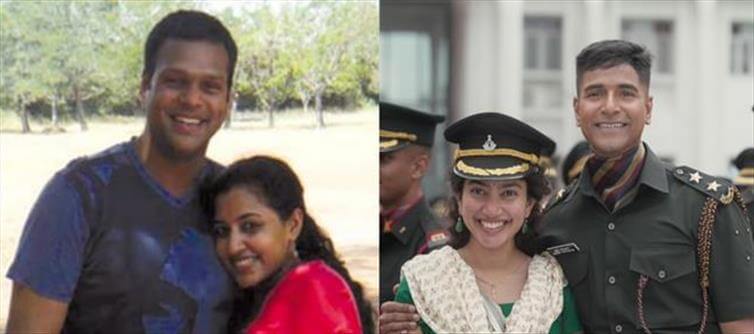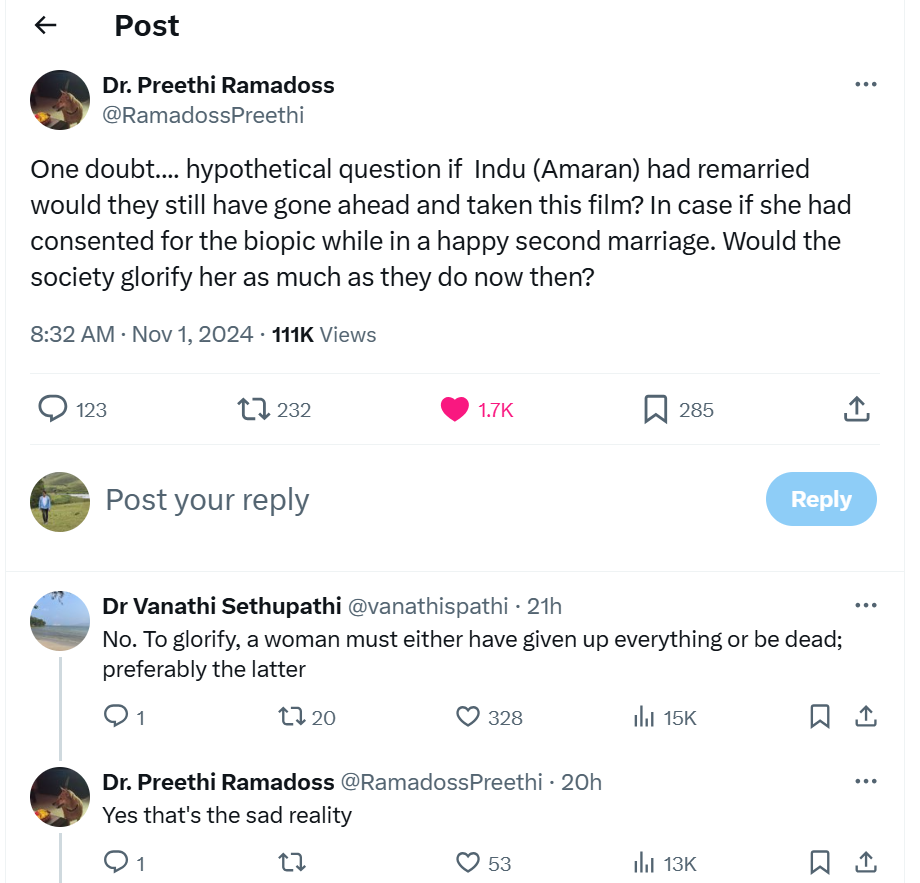
The character portrayal of Indu has sparked admiration and discussions online, highlighting the societal reverence for her dedication to Major Mukund’s legacy. However, a thought-provoking question raised by a netizen on X (formerly Twitter) recently triggered a broader debate. The hypothetical question asked whether the film would still have been made or received the same acclaim if Indu had remarried after her husband’s death and given her consent for the biopic from a place of happiness in a second marriage.
 This question has opened up a conversation about the complex expectations society places on widows, especially those associated with war heroes or martyrs. Many commenters pointed out that there is often an unspoken standard that martyrs' families, particularly spouses, are expected to uphold – one that includes lifelong dedication to the memory of their deceased partners.
This question has opened up a conversation about the complex expectations society places on widows, especially those associated with war heroes or martyrs. Many commenters pointed out that there is often an unspoken standard that martyrs' families, particularly spouses, are expected to uphold – one that includes lifelong dedication to the memory of their deceased partners.Some argued that society tends to glorify the “devoted widow” archetype and that any deviation from this role, such as remarriage, could alter public perception. The idea of Indu moving on, even hypothetically, seems to challenge traditional ideals surrounding honor and loyalty, showing how societal views of a woman’s worthiness can sometimes hinge on her relationship status rather than her personal resilience or achievements.




 click and follow Indiaherald WhatsApp channel
click and follow Indiaherald WhatsApp channel